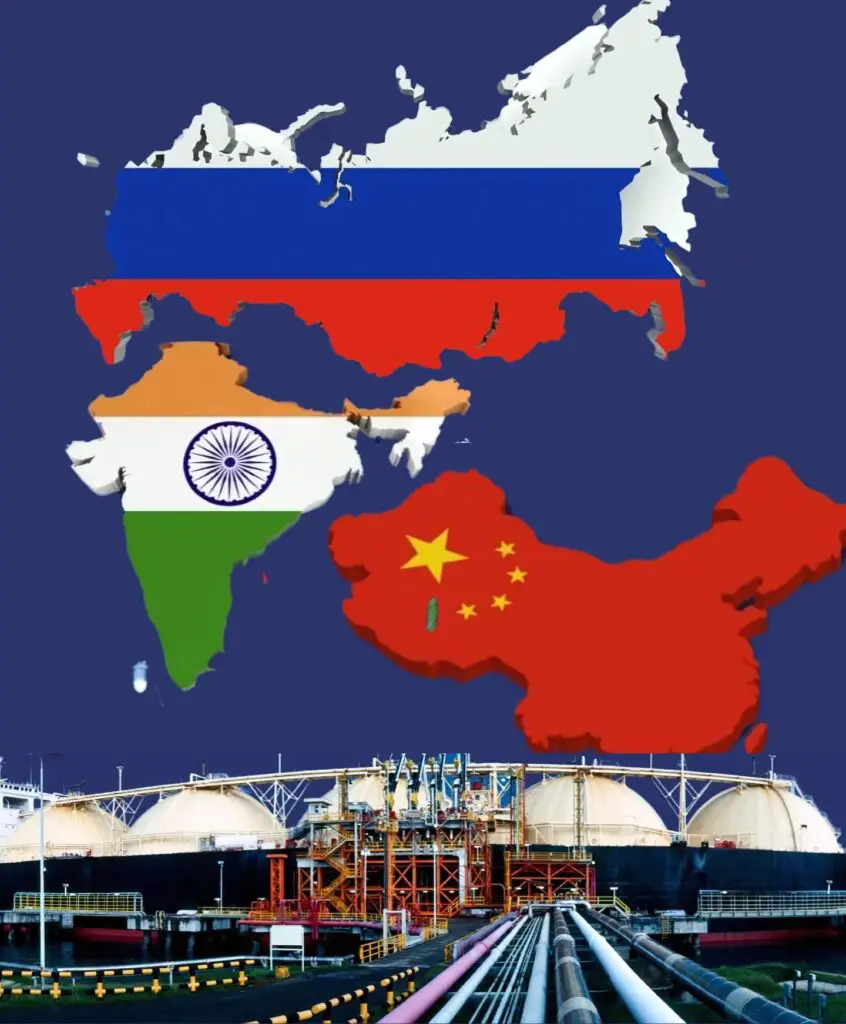Russia Sells Oil to China and India Using Crypto to Avoid Sanctions
So, Russia has started using cryptocurrency to sell oil to China and India as a way to bypass the economic sanctions that have been restricting its access to traditional financial systems. Since the sanctions cut off Russia from things like the SWIFT payment network, it was becoming really hard for the country to get paid for its oil exports. To get around these restrictions, Russia turned to cryptocurrencies, which aren’t controlled by any central bank and are much harder to regulate. This move is also raising some interesting questions about how digital currencies could change global trade.

Why Is Russia Using Crypto for Oil?
After the Russia-Ukraine conflict, heavy sanctions were placed on Russia, making it almost impossible for them to access the global financial system. That’s when they turned to cryptocurrency. Cryptos like Bitcoin are decentralized, meaning they don’t rely on traditional banks or governments, which makes it harder for Western countries to block payments.
So, Russia uses crypto to keep its trade flowing with China and India without interference from Western financial institutions.
How Does It Work?
Here’s how the process goes:
Oil Shipment: Russia exports crude oil to China and India.
Crypto Payment: Instead of paying through traditional banks, China and India pay in digital currencies like Bitcoin or stablecoins.
Conversion to Rubles: Once Russia receives the cryptocurrency, it’s exchanged for rubles (Russia’s local currency) through intermediaries or platforms that operate offshore.
Bypassing Sanctions: Since cryptocurrencies work outside of traditional financial networks, they avoid the sanctions imposed by Western nations.
Why China and India Like This?
China and India are on board with this for a few reasons:
- Discounted Oil: Russia offers cheaper oil, so it’s a win for both countries.
- Less Dependence on the U.S. Dollar: By using crypto, they’re reducing their reliance on the U.S. dollar, which is dominant in global trade.
- Energy Security: As major energy consumers, both countries need a steady, affordable supply of oil, and this helps secure that.
The Risks
Even though it helps bypass sanctions, there are some risks:
- Price Volatility:Cryptocurrencies can go up and down in value quickly, so the payments can become unpredictable.
- Regulatory Issues: Both China and India have strict rules about cryptocurrency, which could create legal issues.
- Security Risks: Digital transactions are vulnerable to cyberattacks or fraud, so there are safety concerns with handling such large-scale crypto transactions.
The Bigger Picture
Russia’s decision to use cryptocurrency for oil sales could signal a shift in how global trade works. If other countries start doing the same thing, it could weaken the U.S. dollar’s grip on global commerce and change the international financial system. In response, Western countries might step up their efforts to regulate crypto to prevent it from being used to bypass sanctions.
Conclusion
So, Russia’s using cryptocurrency as a workaround for the sanctions it’s facing, helping keep its oil exports going. While it might offer a short-term solution, it also creates uncertainty with financial and regulatory risks. It’s clear that cryptocurrencies are becoming a bigger part of global trade, but how they’ll fit into the future of international commerce is still up in the air. It’s definitely something to watch!














